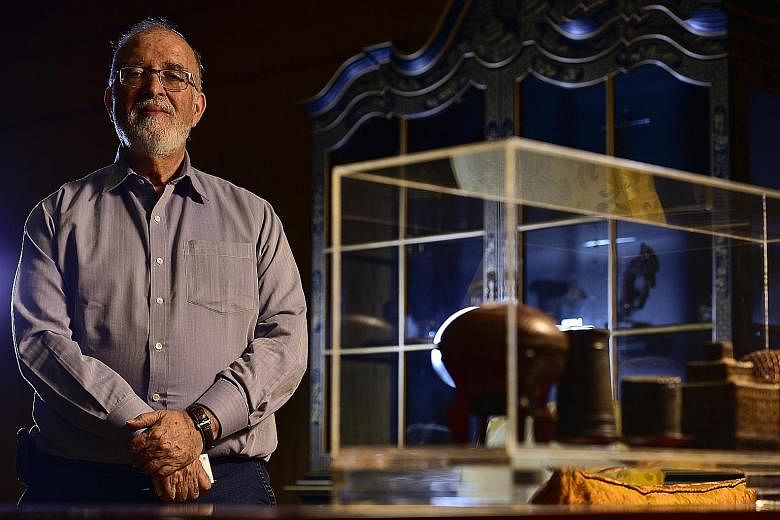Let the top 1 per cent of students defer their two-year national service stint to pursue a degree in science, technology, engineering and mathematics (Stem), before funnelling them into the military to hone their cyber-security skills.
And let government scholarship holders defer serving their bonds so they get to work first in the private sector - to ease talent flow between the private and public sectors.
These are decisions that the Singapore Government must make to build a sustainable cyber-security ecosystem and pipeline of cyber defenders, said retired Israeli major-general Isaac Ben-Israel, 67.
The father of Israel's booming cyber-security industry told The Straits Times that Singapore is doing the right thing by starting a cyber-security vocation in NS this year to build its defences against cyber threats. "Israel has been doing this for decades," he said. However, he said the Republic's move must be accompanied by policy changes.
In Singapore, the brightest students tend to enter fields such as medicine, law, banking and business, thinking they offer better job prospects. A shift is needed, he said.
"Singapore should offer the opportunity to study Stem subjects as a special prestigious track," said Professor Ben-Israel, who chairs the Israel Space Agency.
Because Israel started funnelling the top 1 per cent of its students to Stem subjects 70 years ago, 1.4 per cent of its population are now engineers and scientists. He was among such students in 1967, when he studied mathematics, physics and philosophy at Tel-Aviv University, receiving his PhD in 1988.
Comparatively, only 0.5 per cent of Singapore's population are engineers and scientists, and half of them are foreigners, he said.
The numbers were brought up at meetings he attended as a member of Singapore's Research, Innovation and Enterprise Council, set up in 2006 to chart the country's research and development direction.
Prof Ben-Israel was in Singapore this week to attend a board meeting at the Agency for Science, Technology and Research.
In an interview on Monday, he said Singapore has all the necessary ingredients for success: A decisive government with foresight, and good digital infrastructure in the telecommunications, banking and public sectors. "There is no reason why Singapore would not succeed."
But the lack of talent flow between the private and public sectors could stand in the way. "You will understand life better than before if you have worked in the private sector."
Prof Ben-Israel, who was involved in developing Singapore's cyber-security strategy launched last October, also spoke about the need to make the use of technology safer without inhibiting tech progress.
Specifically, he said that Singapore's plans to de-link its public servants' computers from the Internet is "going backwards" - and something that Israel would not do.
He also did not have the answer to what must be done to deal with future cyber threats, saying the right question to ask should be: "What must you do to build the right ecosystem that will know what to do to deal with future cyber threats?"
That was the question he recommended that Israel had to answer in 2010, when Israeli Prime Minister Benjamin Netanyahu asked him to launch its National Cyber Initiative.
What ensued were several measures, including introducing cyber security as a subject in high school and as an undergraduate course, and starting research centres in the universities. They contributed to Israel's accelerated growth as a cyber-security product exporter.
Israel, with its population of just 8.6 million people, commanded 10 per cent - or US$6.5 billion (S$9.06 billion) worth - of the world's yearly cyber-security exports last year, second only to the US. Five years ago, its cyber-security exports were worth only US$1.6 billion.
The professor at Tel-Aviv University and head of its Blavatnik Interdisciplinary Cyber Research Centre said cyber threats must not be looked at from just the technology angle. "One cannot really understand the problems without taking into account legal constraints, business consideration, individual psychology and social behaviour."


